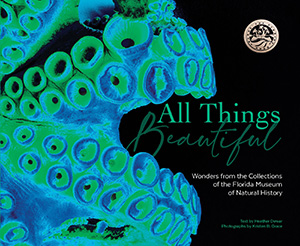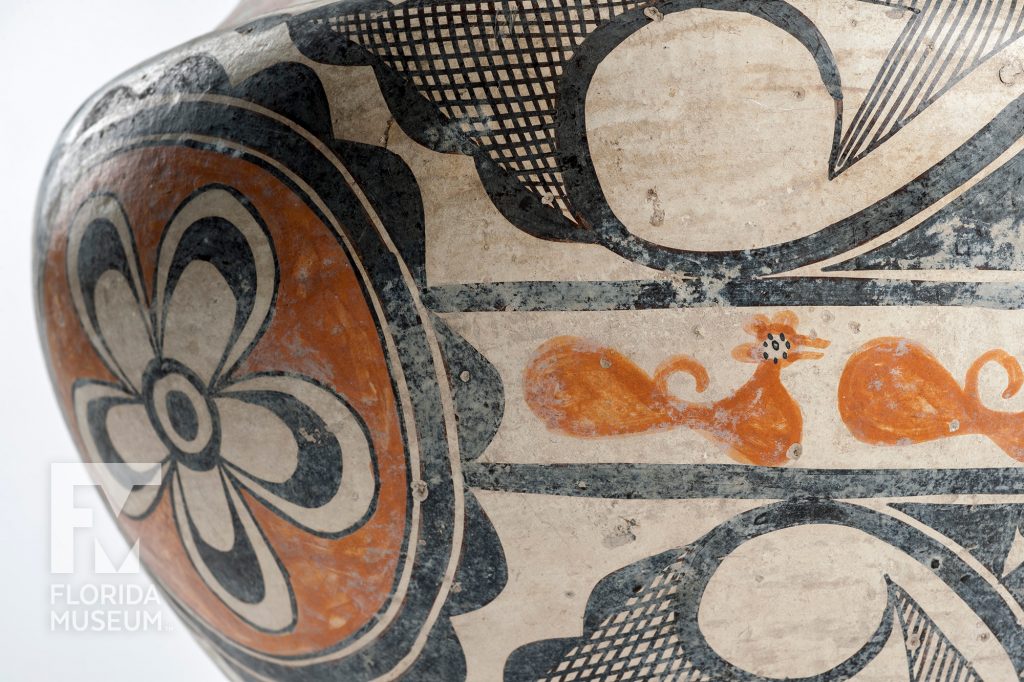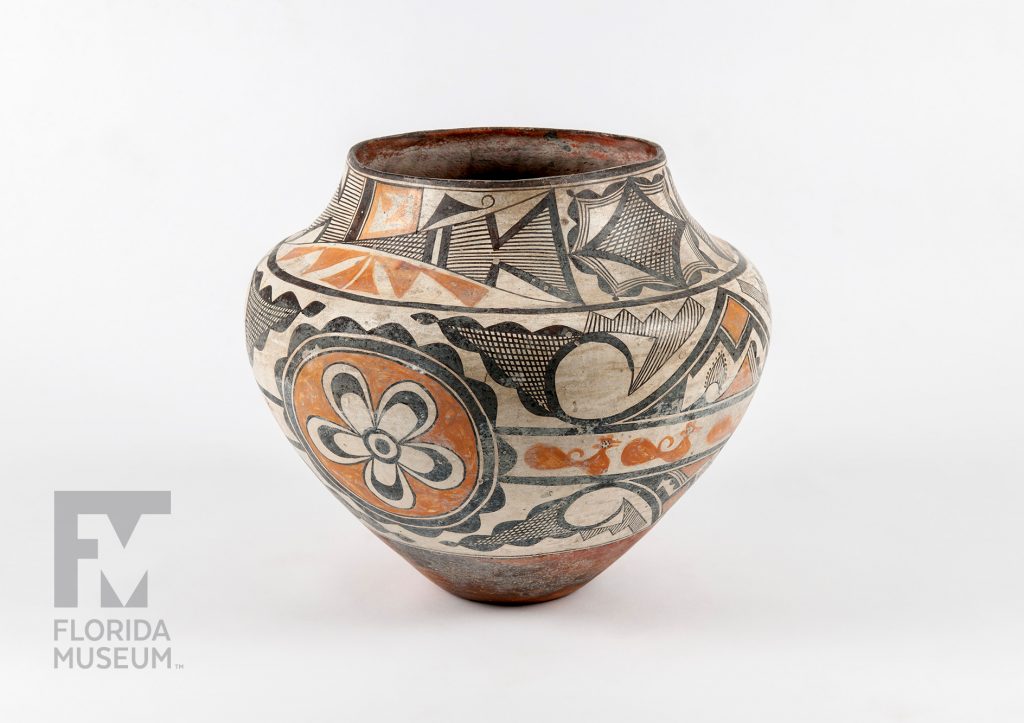Acoma pottery is distinguished by very thin walls, a difficult technical achievement without the use of the potter’s wheel. This jar represents an Acoma adaptation of Zuni designs, showing an artistic interchange between neighboring tribes.
Summary
Ceramic Water Jar
Made by Acoma people, New Mexico
Dates to ~19th century
Collection
Story
Acoma pottery is distinguished by very thin walls, a difficult technical achievement without the use of the potter’s wheel. The pots were made by molding the base and stacking rolled coils of clay. The shape of the ceramic water jar resembles examples dating between 1830 and 1890.
This piece is unusual because it represents an Acoma adaptation of Zuni designs showing an artistic interchange between neighboring tribes of different language groups in the Southwest. The floral motif and swirling rain bird are more typical of the Zuni, but the red base and other details help identify this as an Acoma pot from New Mexico.
Susan Milbrath
Curator, Latin American Art and Archaeology*
Florida Museum of Natural History
Exhibit
On display Sept. 23, 2017-Jan. 7, 2018, Rare, Beautiful & Fascinating: 100 Years @FloridaMuseum celebrated the Museum’s rich history. Each Museum collection was asked to contribute its most interesting items and share the stories that make them special. Though the physical exhibit is closed, this companion website remains online, providing an opportunity to experience the Florida Museum’s most treasured specimens.
Exhibit Area: Objects Tell Stories
Theme: Beautiful Artistry
 Want to see more? Explore more than 300 breathtaking color photos of plants, animals, fossils and cultural heritage materials from the Florida Museum of Natural History’s collections in the award-winning book All Things Beautiful available from the University Press of Florida.
Want to see more? Explore more than 300 breathtaking color photos of plants, animals, fossils and cultural heritage materials from the Florida Museum of Natural History’s collections in the award-winning book All Things Beautiful available from the University Press of Florida.
*This title was accurate at the time the exhibit was on display in 2017. Please visit the collection website to verify current staff and student information.

